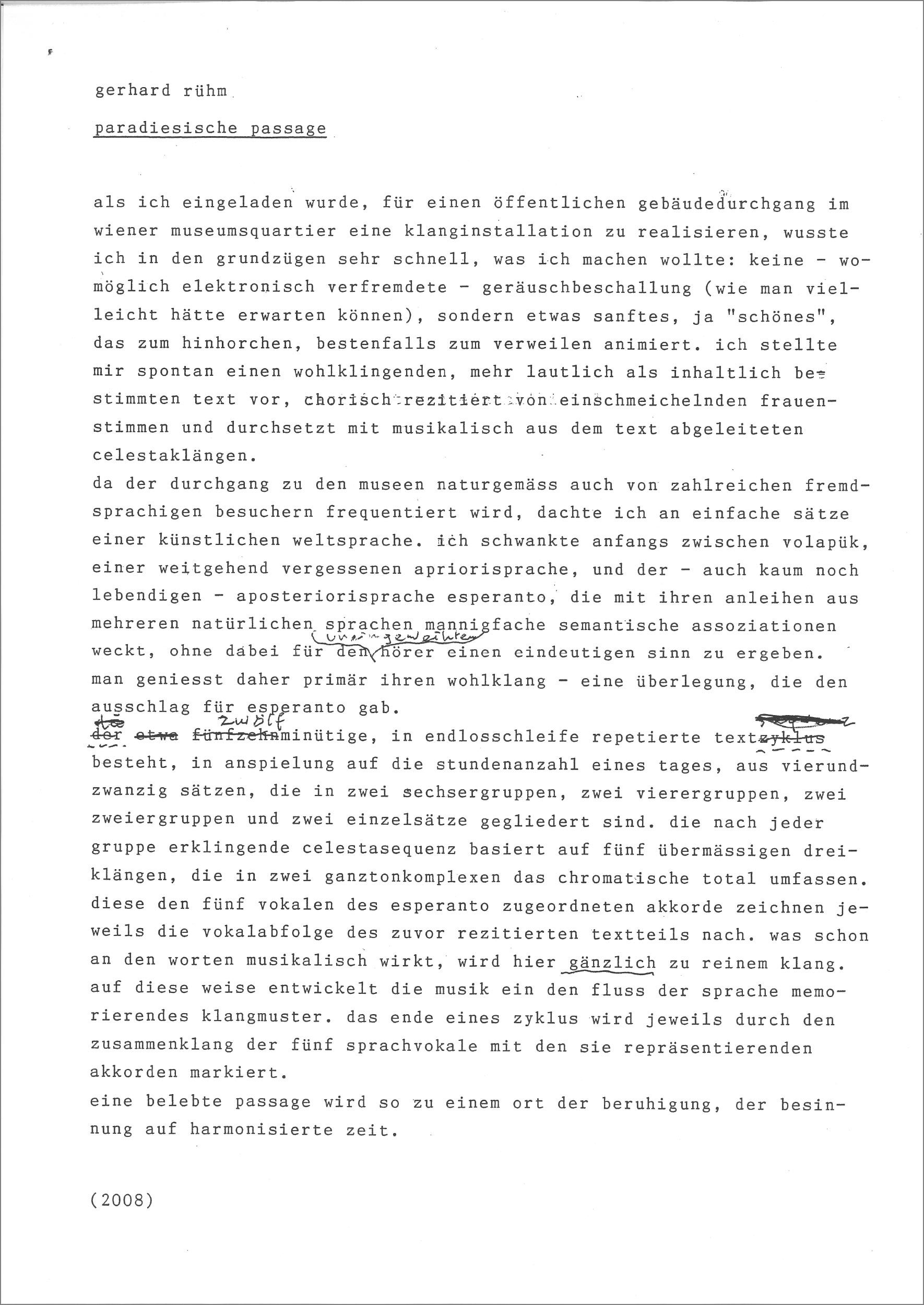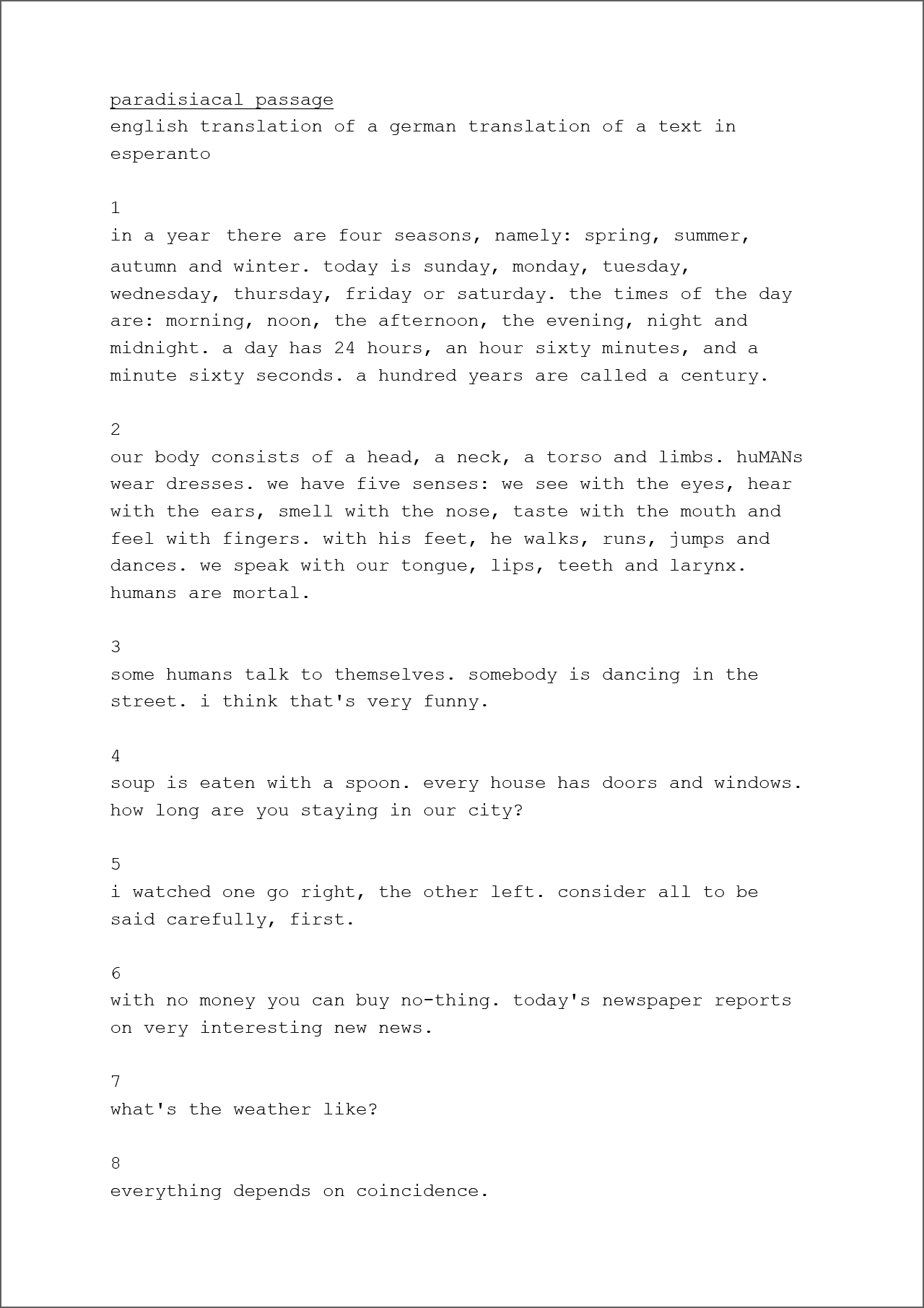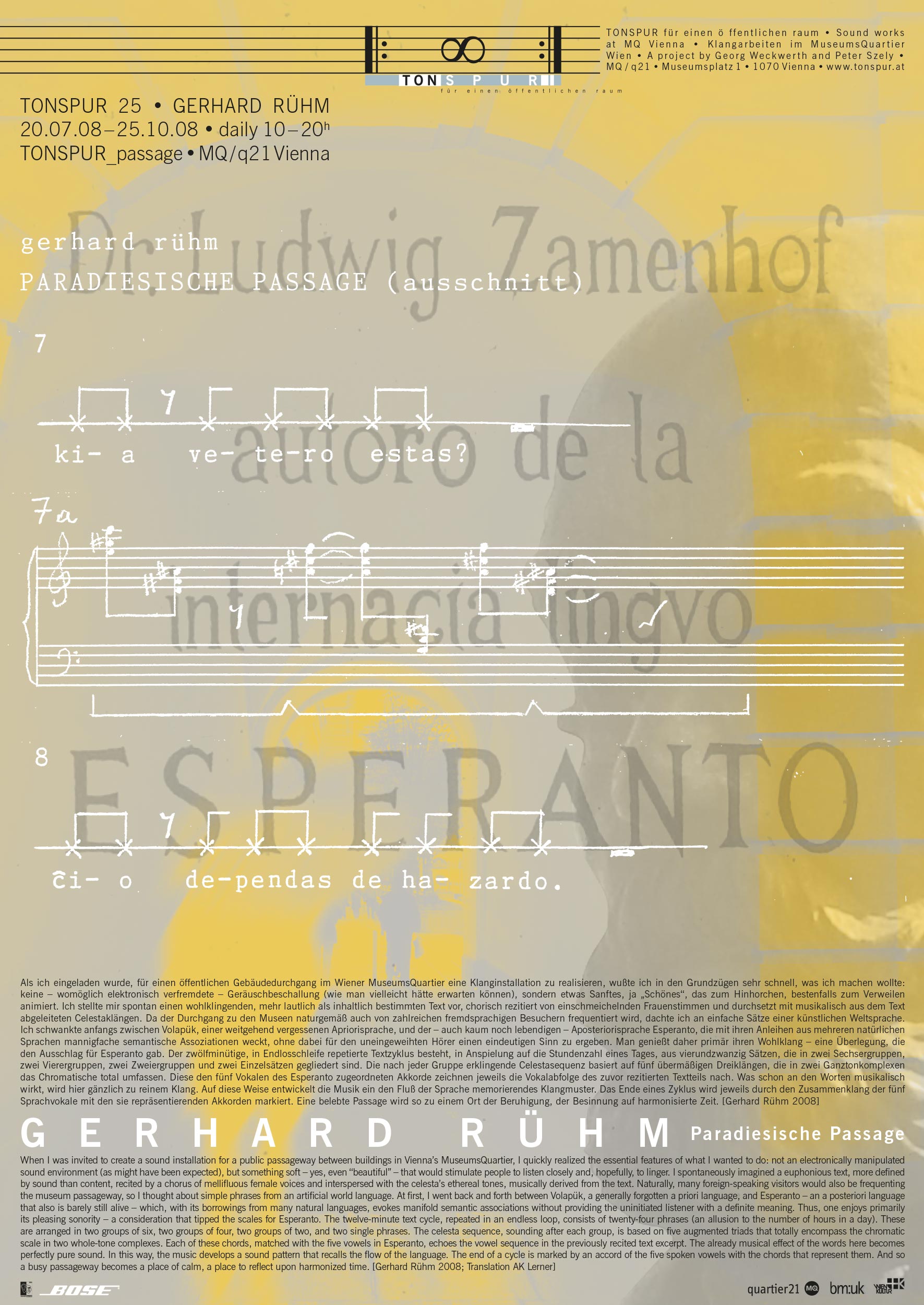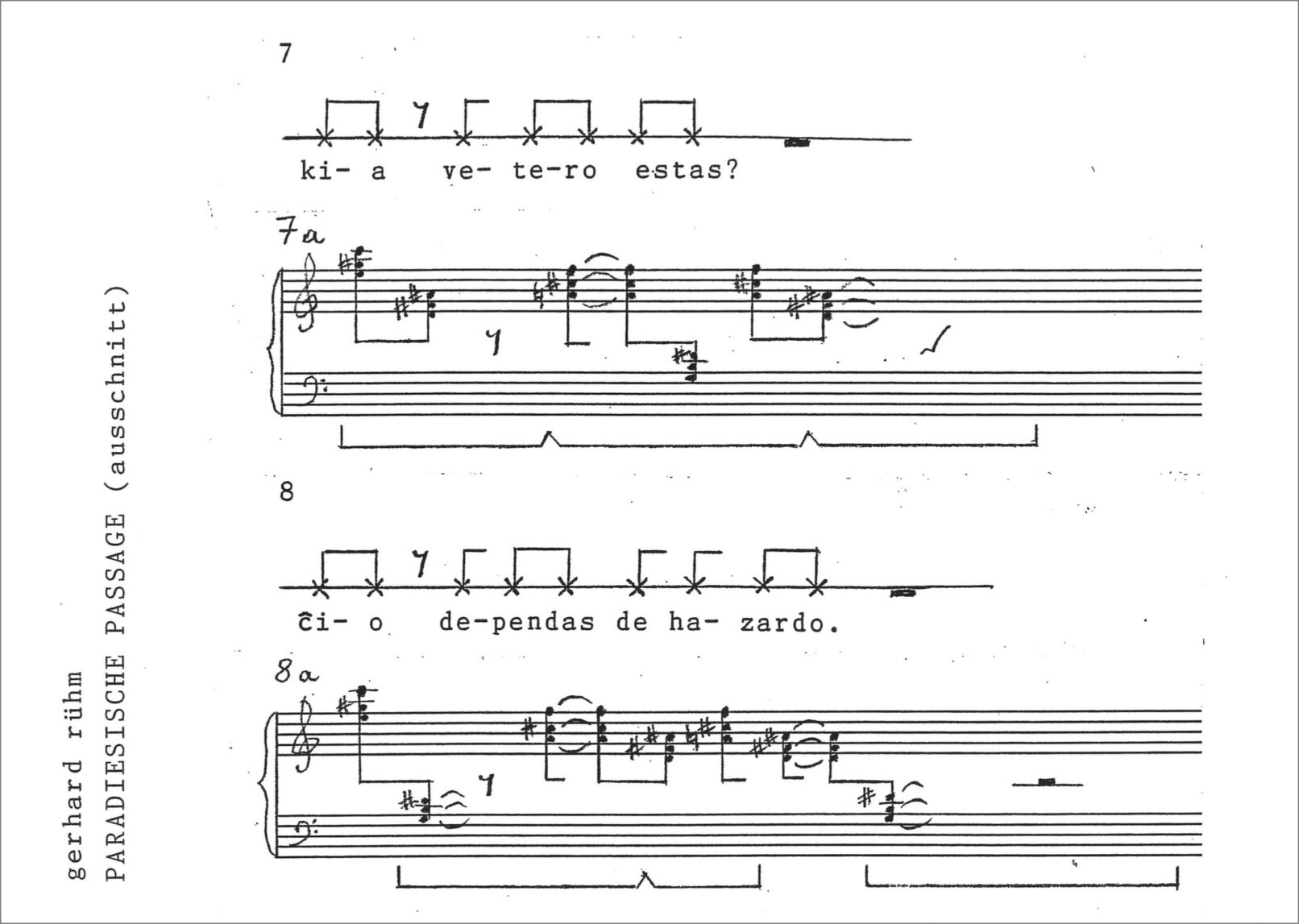Gerhard Rühm • TONSPUR 25
Paradisiacal Passage, 2008 • TONSPUR 25
PARADIESISCHE PASSAGE
Gerhard Rühm is undoubtedly one of the most outstanding and productive artists of his generation. Born in Vienna in 1930, the artist, composer and author, who has lived mainly in Germany for more than three decades, has ‘anticipated’ today’s intermedial art through his combination of very different interests, talents and professions in his work since the early 1950s. Furthermore, as a co-founder of the ‘Wiener Gruppe’, this legendary Austrian artist formation around H. C. Artmann, dedicated to the experimental in their own literature, in particular the conception of language as optical and acoustic material, he is an integral part of the art history of the second half of the 20th century. Gerhard Rühm has won numerous prizes, including the Grand Austrian State Prize in 1991, and who else but this great artist, who is always curious and thinks and works as intensely as ever, could be considered as the Austrian position for the design of the anniversary TONSPUR 25 for a public space, the TONSPUR_passage in the quartier21 of the MQ Vienna. Gerhard Rühm is a great pleasure and honour for us; and the Paradiesische Passage – in fact Rühm’s first (sound) work in public space – is a highlight of the series of changing sound works in the MQ. This series itself will celebrate its anniversary on 14 September, when its creation will be celebrated for the fifth time.
In October, Gordon Monahan, one of Canada’s most important sound artists, will round off the 2007-08 anniversary season with his TONSPUR 26 [g.w.].

GERHARD RÜHM
Paradisiacal Passage
When I was invited to create a sound installation for a public passageway between buildings in Vienna’s MuseumsQuartier, I quickly realized the essential features of what I wanted to do: not an electronically manipulated sound environment (as might have been expected), but something soft – yes, even “beautiful” – that would stimulate people to listen closely and, hopefully, to linger. I spontaneously imagined a euphonious text, more defined by sound than content, recited by a chorus of mellifluous female voices and interspersed with the celesta’s ethereal tones, musically derived from the text.
Naturally, many foreign-speaking visitors would also be frequenting the museum passageway, so I thought about simple phrases from an artificial world language. At first, I went back and forth between Volapük, a generally forgotten a priori language, and Esperanto – an a posteriori language that also is barely still alive – which, with its borrowings from many natural languages, evokes manifold semantic associations without providing the uninitiated listener with a definite meaning. Thus, one enjoys primarily its pleasing sonority – a consideration that tipped the scales for Esperanto.
The twelve-minute text cycle, repeated in an endless loop, consists of twenty-four phrases (an allusion to the number of hours in a day). These are arranged in two groups of six, two groups of four, two groups of two, and two single phrases. The celesta sequence, sounding after each group, is based on five augmented triads that totally encompass the chromatic scale in two whole-tone complexes. Each of these chords, matched with the five vowels in Esperanto, echoes the vowel sequence in the previously recited text excerpt. The already musical effect of the words here becomes perfectly pure sound. In this way, the music develops a sound pattern that recalls the flow of the language. The end of a cycle is marked by an accord of the five spoken vowels with the chords that represent them. And so a busy passageway becomes a place of calm, a place to reflect upon harmonized time.
Gerhard Rühm, 2008
Translation: AK Lerner


TONSPUR 25: GERHARD RÜHM [A/D]
Paradisiacal Passage
Opening:
Sunday, 20 July 2008, from 5 p.m.
TONSPUR_passage [between courtyards 7 and 8]
Daily 10 a.m. – 8 p.m. (until 25 October 2008)
Welcome – Georg Weckwerth [TONSPUR]
Introductory words – Edelbert Köb [Director MUSEUM MODERN ART Vienna]
Sound mixing – Martin Leitner [ORF KUNSTRADIO]
Special thanks – Chorgemeinschaft ‘Neu(n)gsang’ [Conductor: Johanna Hollenstein]
Courtesy – Christine König Gallery, Vienna
PARADIESISCHE PASSAGE was created in co-operation with ORF-Kunstradio. Broadcast of the radio version of ‘Paradiesische Passage’ and other works by Gerhard Rühm in ‘Kunstradio – Radiokunst’ on Sun 14.09.08 at 23:05h on Ö1.









